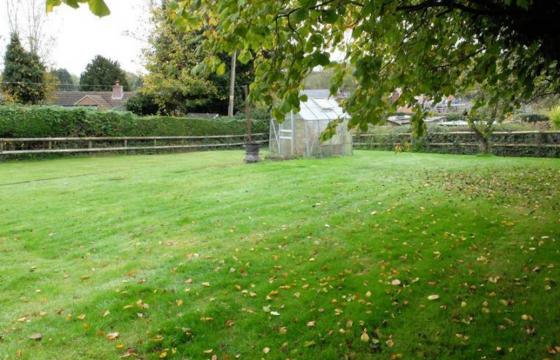Where to buy land — 10 places to look for a plot for a self-build home
Discover the right plot for your house with our guide to where to buy land

If you’re planning to buy a house, where you should look for likely properties is evident. Where to buy land when you want to build your own home, however, probably isn’t as apparent.
Get savvy about the places to look, though, and you’ll discover that some of the places to buy land cross over with those you’d use when buying a house – although it’s possible you might not have considered them as methods for doing so. And you’ll find there are additional places to buy land, too.
As wide a search as possible when you want to buy land will maximise your chances of finding a suitable plot and could save time, so we’ve put together a guide to all the places to look.
1. Plot-finding sites

Subscribe to Plotfinder.net to access over 15,000 building plots and properties that could become your next project
Subscribe to plot-finding services like Homebuilding & Renovating’s plotfinder.net. It has more than 10,000 UK-based plots up for sale. It includes everything from basic plots with no planning consent to renovation opportunities and land with all the planning permissions already in place. It’s also a great place to start because it will give you an idea of what you can expect to pay in the area in which you’re interested.
Be sure to note which agents are selling land where you want it, too, so you can target the next of our recommendations.
2. Estate and land agents
Land is sold through estate agents and land agents, so register with agents in the area in which you want to buy. It’s worth going into their offices in person and keeping in regular touch so that they have you in mind when they’re selling land that suits your requirements.
3. Property portals
Property portals like Rightmove, Zoopla, Onthemarket, and Prime Location sell land as well as houses, so be sure to look for what’s available in your chosen area on these sites, too.
Some of the sites provide a land filter but, on those that don’t, using the lowest price first option can help you find plots more quickly. Alternatively, use portal name land for sale in your search engine.
4. Auction
Buying a house at auction could be a good move if you’re aware of what it entails, but they’re also sources of land that’s for sale.
“Do your homework first,” advises Elli Kiely, design and innovation director, HJK Construction. “Auctions move fast, so you need to be fully prepared. Check the legal pack (usually available before the auction) for any restrictive covenants, access issues, or planning limitations.”
Be mindful that some plots come with planning permission, but others don’t. “If there’s no permission, research previous applications to see if the council has rejected anything similar before,” says Elli.

Elli Kiely joined HJK Construction in 2021. As the company’s design and innovation lead, Elli focuses on enhancing the aesthetic and functional aspects of each project, ensuring every build meets the highest standards while incorporating modern, sustainable designs.
5. Maps
Finding land to buy might need some detective work of your own to identify likely plots. Google maps and its street view can prove a great starting point, says Elli Kiely.
“You can use satellite imagery to spot pockets of unused land, large gardens that might be split, or brownfield sites with potential,” she explains. “Street view also helps you get a feel for the area without leaving your home.”
If you see a plot and don’t know to whom it belongs, search via the Land Registry for England and Wales, the Registers of Scotland or the Land Registry for Northern Ireland. But asking neighbours might help alternatively.

6. Landowners
You might be able to buy land from larger landowners like farmers or from homeowners with big gardens, and if you identify a potential plot like this you’ll need to make a personal approach.
Be mindful that it likely won’t have planning permission so get in touch with the local planning department to assess whether this might be viable. And if you decide to go ahead, agree a contract with the landowner that’s conditional on gaining planning permission.
7. Council information
The local authority could show you where to buy land. “Councils often have strategic land assessments and local development plans, which highlight where new homes might be encouraged,” says Elli Kiely.
Meanwhile, in England, Right to Build legislation obliges councils to keep a register of people who want to find a self-build (or custom-build) plot, which could help you find land. Register via the local authority website.
8. Leafletting
If you’ve identified an urban area with gardens that might offer suitable plots, it can be worth putting leaflets through doors across a few streets. It could make a homeowner think of a land sale they hadn’t previously contemplated and some people prefer an approach in which they can contact you after thinking things over to a knock at the door.
9. Locals
Networking and word of mouth are worthwhile and could help you identify where to buy land.
“Never underestimate the power of a friendly chat,” says Elli. “Let local builders, landowners, and even shopkeepers know you're looking – sometimes, the best plots get snapped up before they ever hit the market.”
10. Finders and consultants
When your own efforts aren’t working, property finders and planning consultants could reveal where to buy land.
“Property finders are professionals who specialise in sourcing properties that meet your specific criteria,” says Thomas Goodman, property and construction expert at MyJobQuote. “They have extensive networks and knowledge of the local market and can often find land that isn’t publicly listed.
“Planning consultants can provide expert advice on planning regulations and potential development opportunities,” he continues. “They can help you to identify land that is likely to get planning permission and guide you through the application process.”

Thomas Goodman has worked in the construction industry for over 20 years. Thomas continues to work on building projects, while also providing expert construction and property advice to industry professionals and DIY enthusiasts via the MyJobQuote platform.
Building on a city plot, a greenfield plot, a garden plot or an infill plot are all possibilities and can guide which sources for buying land are most useful to you. But bear in mind that online sleuthing, shoe leather and networking are all likely to be a useful part of your arsenal, providing leads on where to buy land.

Get the Homebuilding & Renovating Newsletter
Bring your dream home to life with expert advice, how to guides and design inspiration. Sign up for our newsletter and get two free tickets to a Homebuilding & Renovating Show near you.
Sarah is a freelance journalist and editor writing for websites, national newspapers, and magazines. She’s spent most of her journalistic career specialising in homes.
She loves testing the latest home appliances and products, and investigating the benefits, costs and practicalities of home improvement. She is an experienced renovator and is currently remodelling the ground floor of her new home.
She was Executive Editor of Ideal Home and has worked for Your Home and Homes & Ideas. Her work has published by numerous titles, including The Guardian, channel4.com, Houzz, Grand Designs, Homes & Gardens, House Beautiful, Homes & Antiques, Real Homes, The English Home, Period Living, Beautiful Kitchens, Good Homes and Country Homes & Interiors.
